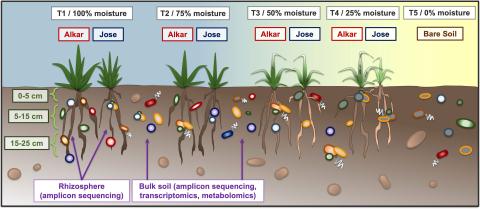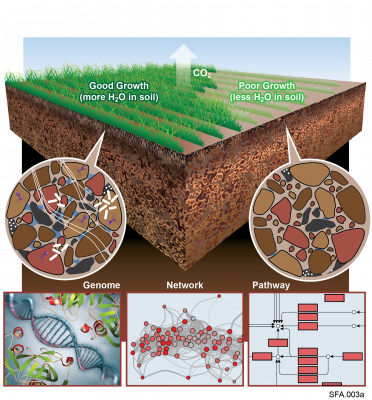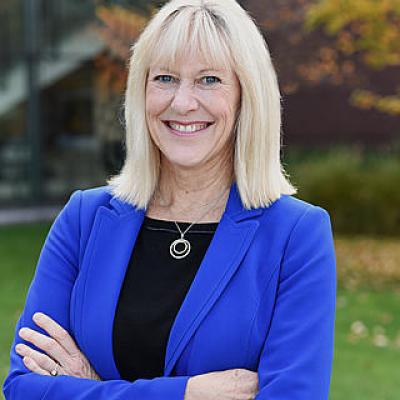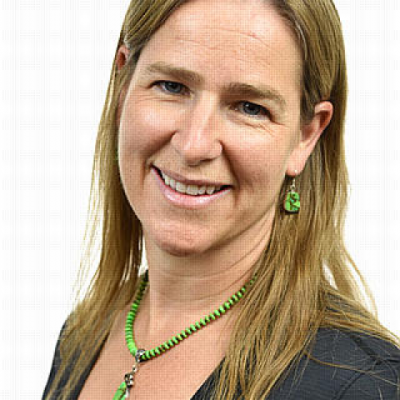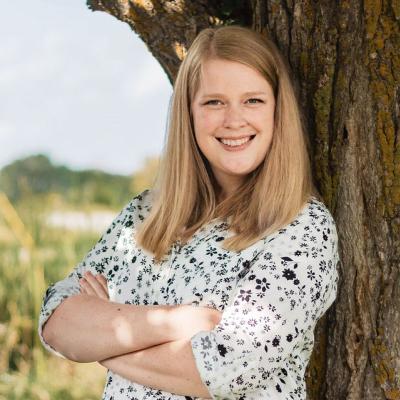Two factors that are well-known to influence soil microbiomes are the depth of the soil as well as the level of moisture. Previous works have demonstrated that climate change will increase the incidence of drought in soils, but it is unknown how fluctuations in moisture availability affect soil microbiome composition and functioning down the depth profile. Here, we investigated soil and wheatgrass rhizosphere microbiomes in a single common field setting under four different levels of irrigation (100%, 75%, 50%, and 25%) and three depths (0-5 cm, 5-15 cm, and 15-25 cm from the surface). We demonstrated that there is a significant interactive effect between depth and irrigation, where changes in soil moisture more strongly affect soil microbiomes at the surface layer than at deeper layers. This was true for not only microbiome community composition and diversity metrics, but also for functional profiles (transcriptomic and metabolomic datasets). Meanwhile, in rhizosphere communities the influence of irrigation was similar across the different depths. However, for the ‘Alkar’ wheatgrass cultivar, the rhizosphere microbial communities responded more strongly to changes in irrigation level than did the communities for the ‘Jose’ cultivar rhizosphere. The lessened response of deeper soil microbiomes to changes in irrigation may be due to higher incidence of slow-growing, stress-resistant microbes. These results demonstrate that the soil microbiome response to moisture content is depth-dependent. As such, it will be optimal for soil microbiome studies to incorporate deeper as well as surface soils, to get a more accurate picture of the soil microbiome response to stress.
Projects (1)
The Phenotypic Response of the Soil Microbiome to Environmental Perturbations Project (Soil Microbiome SFA) at Pacific Northwest National Laboratory is a Genomic Sciences Program Science Focus Area (SFA) Project operating under the Environmental Microbiome Science Research Area. The Soil Microbiome...
Datasets
45

